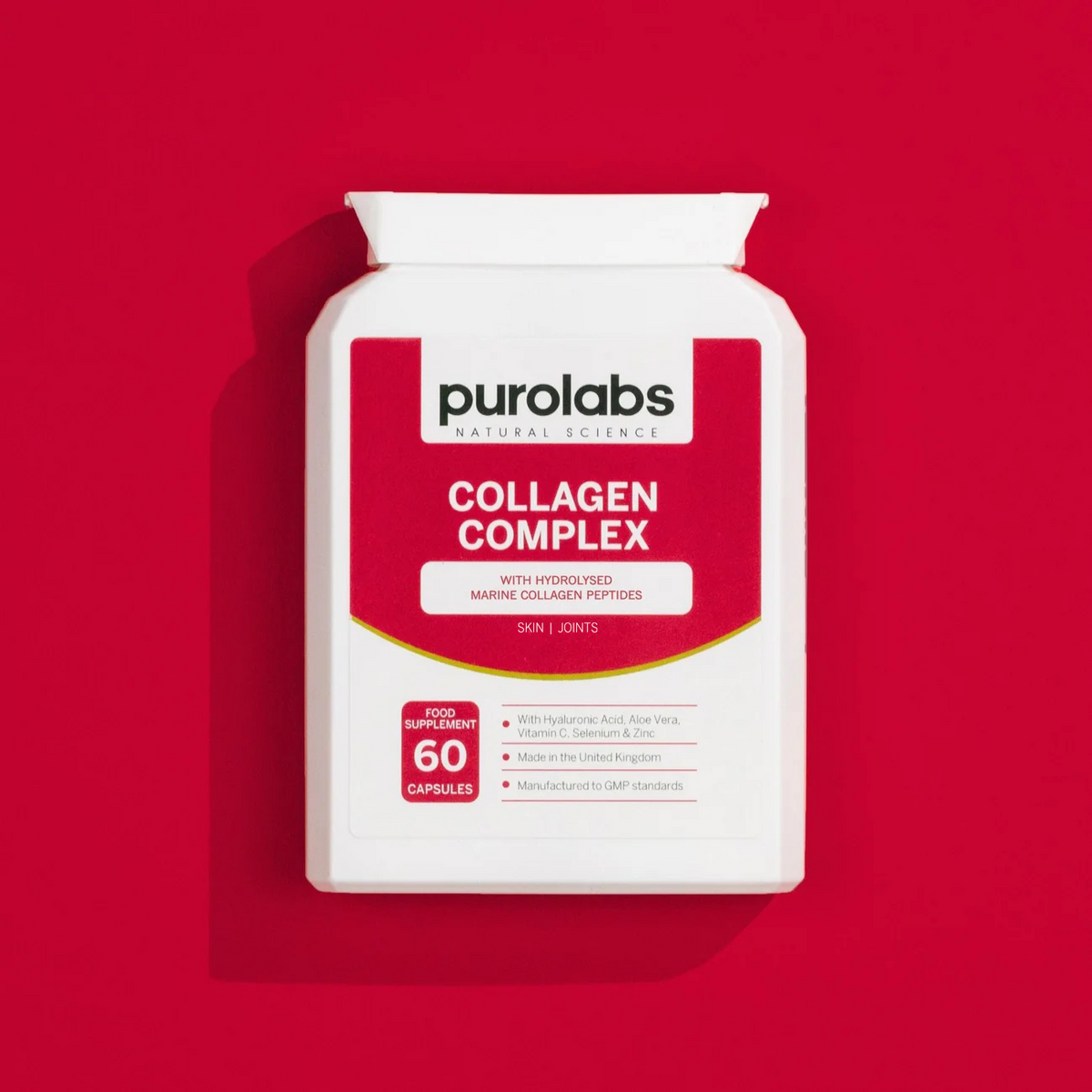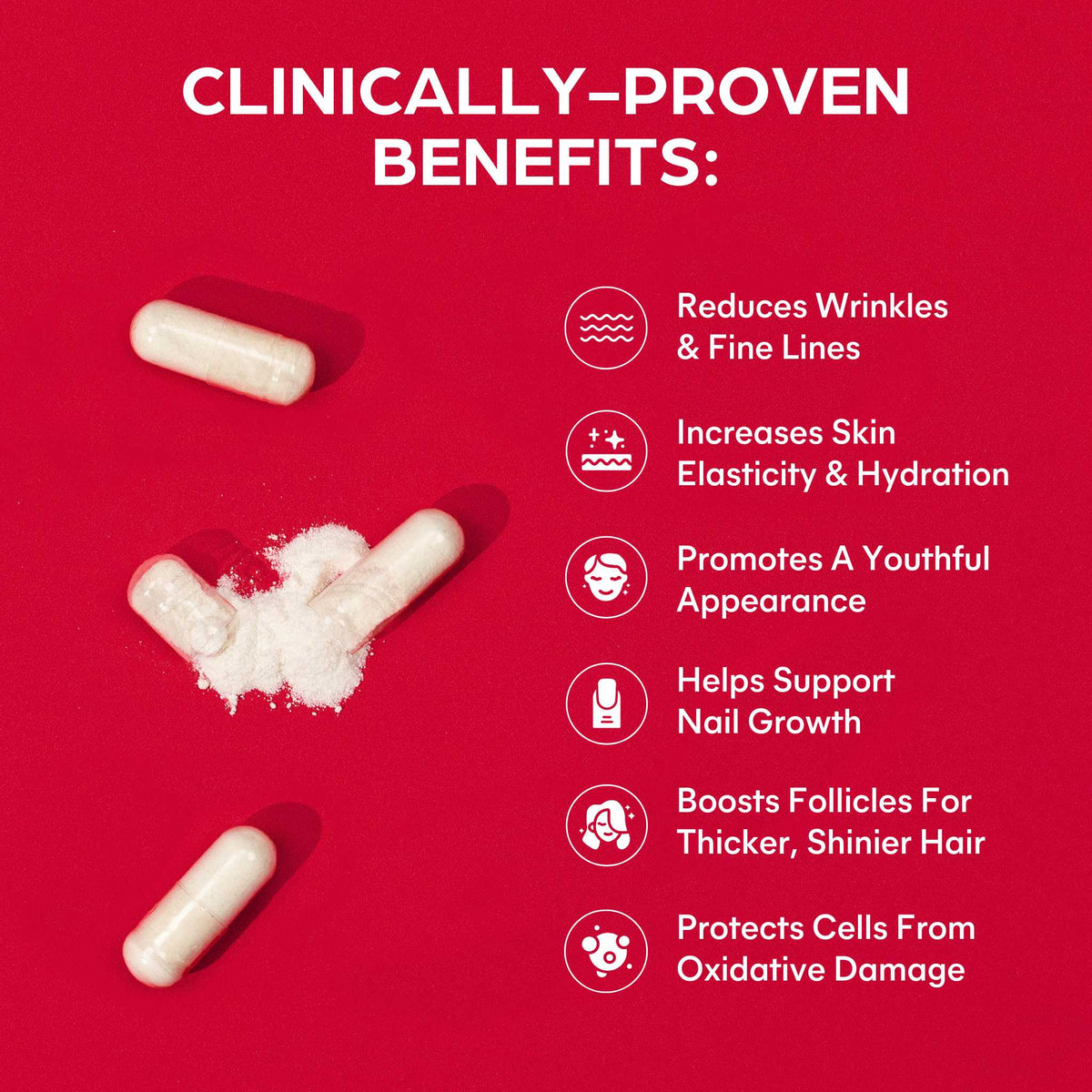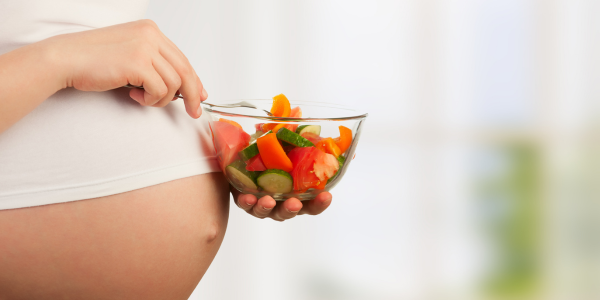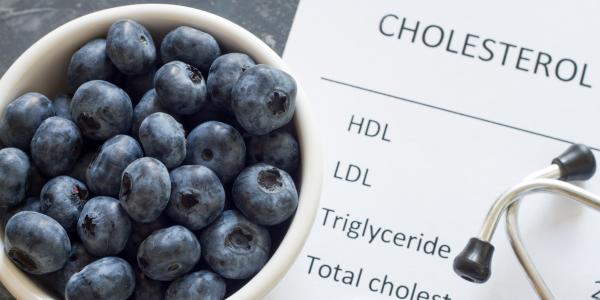Pregnancy is an exciting and demanding time. Intense hormonal fluctuations, increased energetic demands needed to support your body to grow a baby and organising your life to welcome a little one into the world can feel incredibly overwhelming.
Supporting you and your baby nutritionally throughout pregnancy is one of the most important choices to make. However, knowing where to begin can feel utterly confusing.
Let this article provide you with a foundation to help guide you through the most common symptoms experienced through each stage of pregnancy and what key nutrients to consider to support you and your baby.
It is also important to note that if you’re currently trying to conceive, then supplementing with our pregnancy multivitamin is a fantastic way to get your nutrient stores primed and ready for conception. Although not always possible, ideally begin supplementing with a good quality pregnancy multivitamin three months before conception and continue taking it daily until and during postpartum1.
Taking a multivitamin throughout your entire pregnancy journey is highly recommended, however this article will outline a few key nutrient considerations to focus on during each stage...
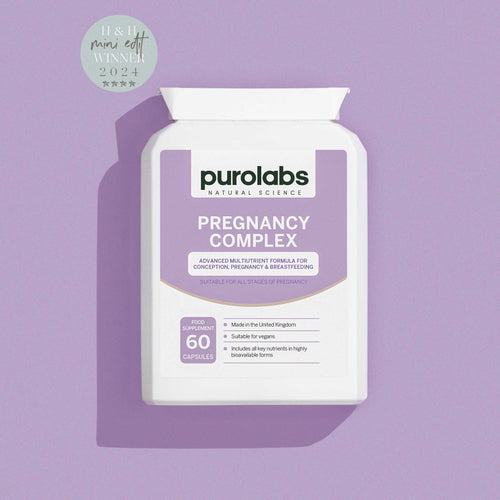
Pregnancy Complex
First Trimester
Although each woman’s experience during pregnancy differs significantly, it is commonly thought that the first trimester for many can be the most difficult.
During this time, women commonly report tender swollen breasts, extreme fatigue, nausea and vomiting and a frequent need to urinate. Magnesium, zinc and B vitamins can help with nausea and fatigue during this period. The sudden surge and fluctuation in hormones can lead to mood changes, bloating and fatigue 2.
Whilst a prominent bump may not appear yet, the uterus is expanding and blood volume is increasing, to prepare the womb to host a baby.
As energy demands dramatically increase, it is perfectly normal to see cravings jump with a need for a higher caloric intake. Whilst it is important in every stage of pregnancy, is especially important during this time to focus on getting a source of protein in with every meal, to help meet the sudden growth demands 4:
- Lean meats & poultry
- Legumes & beans
- High protein grains; buckwheat, quinoa, brown rice
- Fish and seafood (avoid high mercury containing/raw fish) limited to two servings per week
- Eggs
Foetal brain develop is rapid during the first trimester. In fact, the brain makes up half of the total foetal weight by the end of this trimester, making omega 3 supplementation vital. Omega 3 has many benefits during pregnancy 5:

Omega-3
- Supports foetal brain and eye development
- Helps to improve birth weight
- May help reduce the risk of perinatal depression
Folic acid and iodine are especially important nutrients during this stage to prevent neural tube defects and helps with the development of the spine, brain and nervous system 6.
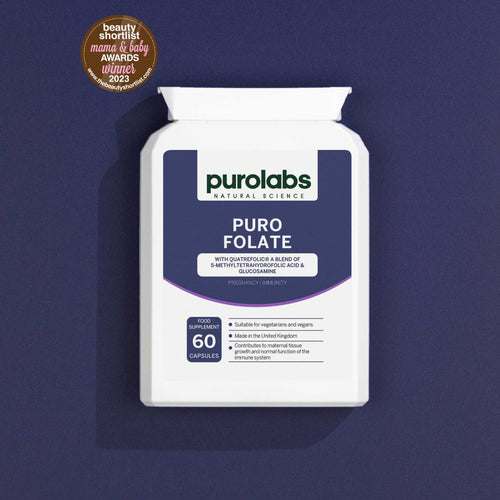
Folate
Choline is an essential nutrient required during the first trimester as it helps to develop foetal stem cells, helping to structure the brain, spinal cord and even long-term memory function. This nutrient is particularly vital pre-conception as it helps with gene expression and can help support a healthy pregnancy outcome 7.
Second Trimester
The body begins to find a little more balance during this trimester, with change and growth still occurring at a rapid rate.
It is important to make the most of a slight reduction in pregnancy symptoms (if you’re lucky) and add regular gentle movement into your day. This can help improve mood, fatigue and support a healthy pregnancy.
As you are likely to be more active during this period, focusing on structuring your meals for optimal nutrient intake can help tackle the fatigue experienced with all the energy demands of growing a baby:
Third Trimester
Iron intake is important for all stages of pregnancy; however, it is the most important during the final 10 weeks. The foetus begins to build their own stores to use for the first 6 months of life, until they are on solid foods. This makes iron supplementation during the third trimester a key consideration 9.

Iron Complex
As the baby’s growth is reaching full capacity, this can bring with it a few physical symptoms. The baby's growing head may press against the stomach, and lead to heartburn and pressure on the mother's bladder.
Having a full stomach from eating large quantities of food in one sitting may worsen symptoms. Consider changing food timings and eat little and often to help reduce heartburn symptoms.
Hormonal fluctuations and pressure on the abdomen can also frustratingly lead to insomnia in many pregnant women, especially as they’re approaching their due date. Whilst it can be difficult to improve insomnia nutritionally, aiming to maintain a regular bedtime routine as well as adopting daily stress reduction practices can help 10.
Cutting down on caffeine and other stimulants, carbonated drinks and spicey foods may also help with indigestion and insomnia.
As calcium demands also increase during the third trimester, it’s more important than ever to supplement with vitamin D to help shift calcium into the tissues, support maternal health, foetal skeletal growth and support a healthy pregnancy 11.
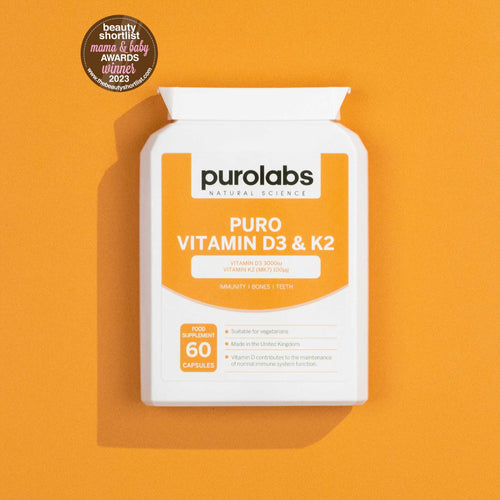
Vitamin D3 & K2
Fourth Trimester
Postpartum maternal health brings varying nutritional needs to pregnancy, although it is still important to note that a good quality multivitamin is just as vital. The mother will need many nutrient stores topped up from the demands of a growing baby. Nutrients that help build healthy hormones and nervous system health will be key.
Nutrients to consider to support the nervous and hormonal system and symptoms of postpartum depression are omega 3, magnesium, B vitamins, Vitamin D & zinc.
The following nutrients also improve breast milk quality to help feed a rapidly growing infant:
Nursing women need an additional 500 calories a day along with an increase in fluid intake to help improve breast milk quality, as breast milk is made up of 87% water. Ensure you continue to include a source of protein with every meal 12.
Interestingly, studies have shown that the mothers microbiota helps improve the infant's delicate microbiome through beneficial bacteria in the breast milk. This is vital for the baby’s immune health and mother’s wellbeing and mood 13.
Our biotic complex here at Purolabs contains 15 live strains of beneficial bacteria including lactobacillus and bifidobacterium which help to aid and support a thriving maternal and infant microbiome.
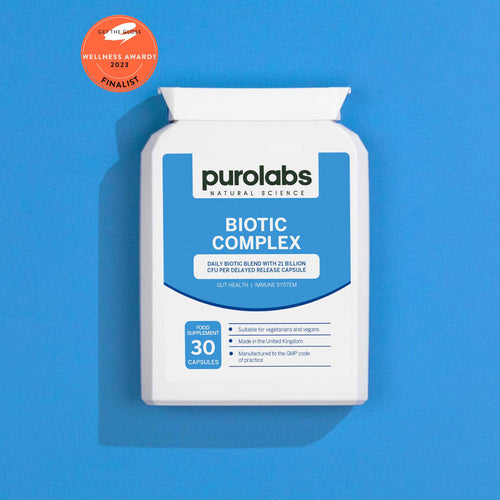

 Beauty
Beauty
 Bone Health
Bone Health
 Brain Health
Brain Health
 Energy
Energy
 Eye Health
Eye Health
 Gut Health
Gut Health
 Hair
Hair
 Hormonal Health
Hormonal Health
 Heart Health
Heart Health
 Immunity
Immunity
 Joints
Joints
 Menopause
Menopause
 Pregnancy
Pregnancy
 Kids
Kids
 Sleep
Sleep
 Stress & Mood
Stress & Mood





